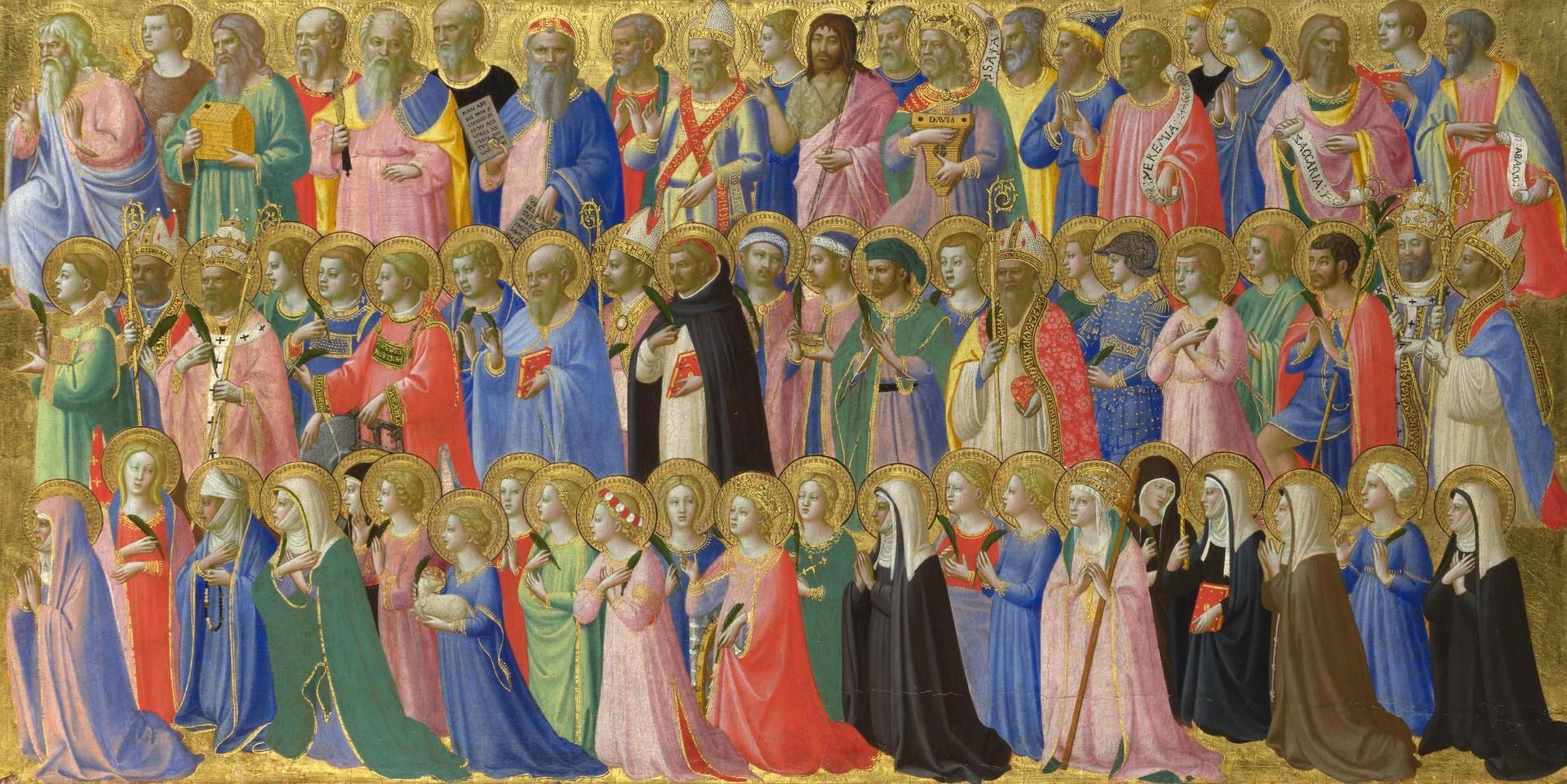The Beatitudes: A Roadmap to Holiness
A Homily for All Saints

Today, the Church gives us the Beatitudes to ponder as we celebrate All Saints. The Beatitudes are not just a list of virtues; they are indicators of a Christ-like life. I am struck how the early Cistercians – Bernard and Aelred, for example, saw them as a sort of road-map to holiness, a step-by-step guide, leading us from where we are now to where God calls us to be. They show us the type of people we can become if we allow God’s grace to shape us—to soften our hearts, smooth our rough edges, and make us into a generous, loving, and compassionate people.
We start with humility: “Blessed are the poor in spirit.” St. Bernard saw poverty of spirit as the humility that St. John Chrysostom called the “mother of all virtues.” Think of how St Augustine and St Benedict saw humility as the foundation of spiritual growth. “Blessed are those who know their need for God” as it has been interpreted. In this way, the Beatitudes are not about what we achieve on our own but about how open we are to God working in us and through us. Rather than rolling up our sleeves and striving for holiness by sheer will power, they call us to set aside ego and self-will (what St. Benedict calls voluntas propria) so that Christ can be at work in us. Not just individually, but collectively as a community.
“Blessed are the gentle" or "Blessed are the meek.” Neither word quite captures the meaning behind the Greek word praus. In our culture, meekness is often seen as weakness, but in Scripture, it means strength under control, it implies a mastery. Meekness is the quiet strength that, rather than responding to injustice with aggression or passivity, holds steady, trusting in God’s timing and purposes. Jesus, “meek and humble of heart,” was no stranger to challenge or confrontation, and the saints followed His example, confronting the wrongs of their times with strength guided by love.
“Blessed are those who mourn.” This is more than personal sorrow. It’s a mourning for sin and suffering, an empathy that draws us into the pain of others. Reflecting on our Blessed Mother, in her Stabat Mater, we pray “Make me feel the power of sorrow; make me truly weep with you.” The saints felt this deeply. They had antennae for the suffering of others, that didn’t reduce them to helplessness but drove them to action. This sensitivity to others’ pain is the root of all true compassion, a hallmark of saintliness.
Which leads us to: “Blessed are those who hunger and thirst for righteousness.” A saint doesn’t shy away from the needs of the world, but longs for the kingdom where the broken are made whole and where the crushed are raised up and justice flows.
“Blessed are the merciful.” Mercy is a radical call to forgive and show compassion. This openness changes the way we relate to others, recognizing God’s mercy in our own lives and extending that to those around us. Practicing mercy changes the way we relate to others.
“Blessed are the pure in heart.” All of this is leading us toward purity of heart, which is single-mindedness for God. To be “pure in heart” means that our intentions and desires are aligned with His will, free of the distortions of selfishness and pride. In this state, we begin to see with God’s eyes.
“Blessed are the peacemakers.” As we allow God to shape our hearts, we become channels of His peace, seeking to reconcile others and seek inclusion not division. We become ambassadors of the peace that only God can give. “Peace I leave you, my peace I give you” said the Risen Lord to his Disciples.
“Blessed are those who are persecuted for righteousness’ sake.” Finally, we find that saints are marked by resilience, by courage in the face of hardship, making them steadfast in commitment, even when the costs are high.
Each of these blessings builds on the last, guiding us from self-centeredness to God-centeredness, from personal transformation to communal love, ultimately leading to union with God. The Second Vatican Council spoke of the “universal call to holiness.” This call reminds us that holiness is not about perfection but about allowing God to work in us, transforming our limitations into strengths.
The saints were not flawless; they struggled, they stumbled, yet they gave themselves to God’s will. They show us the way. Every moment of compassion, patience, forgiveness, and sacrifice is a step toward holiness. May we open ourselves to the grace that shaped them, trusting that God can and will work through us, leading to that fullness of life in Him.









